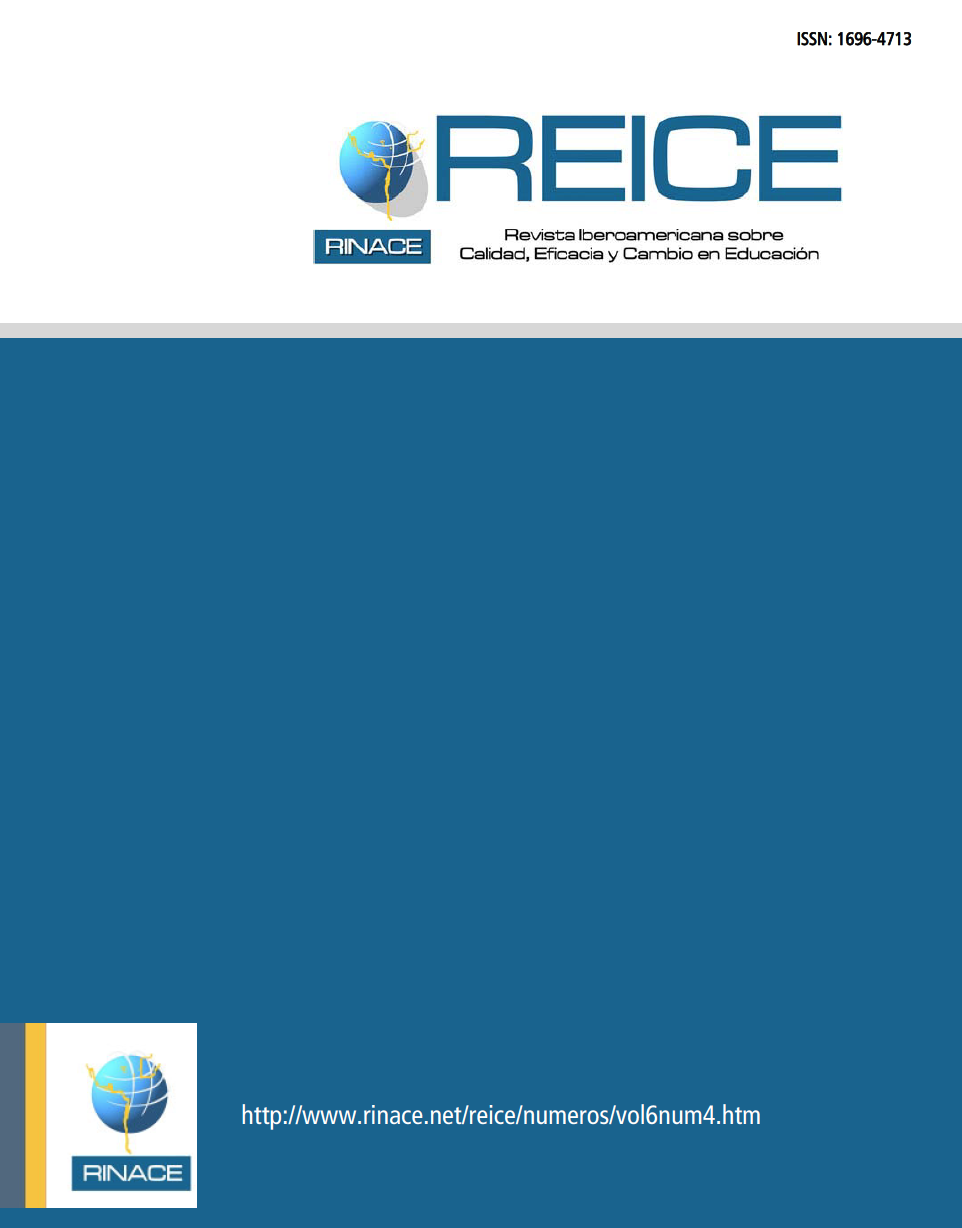School Factors Asociated to Learning in Mexican Elementary Education: A Multilevel Analysis
Keywords:
Quality, Effectiveness, Change, Improvement, Equity, Innovation.Copyright (c) 2016 REICE. Iberoamerican Journal on Quality Effectiveness and Educational Change

This work is licensed under a Creative Commons Attribution-NonCommercial-NoDerivatives 4.0 International License.
Abstract
This article has four main objectives: i) to assess schools’ general influence on Mexican primary-level students’ learning on mathematics and reading; ii) to specify the school factors which are responsible for this impact; iii) to explore differences in those factors’ effects according to schools’ socioeconomic context; and iv) to explore schools’ influence on inequalities related to gender and socioeconomic differences.
Using data form INEE’s “Pruebas Nacionales”, a hierarchical linear analysis was carried on. The main results show that: i) Mexican primary schools have a reduced influence on learning, compared with the impact of socioeconomic factors; ii) nevertheless, schools’ human resources, teachers’ stability in school, and classroom climate, show a positive relationship with learning; iii) school management, school climate, and opportunity to learn, showed almost no relationship with learning; iv) the strength of some of these correlations varies according to the schools’ socioeconomic context; v) there are statistically significant differences among schools, with respect to the impact of pupils’ socioeconomic status and gender.
